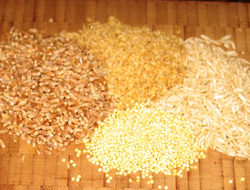Fluoride: not just for your teeth
Published: April 26, 2019
Fluoride is typically associated with the health of your teeth.
Dental decay, dental caries, and missing teeth are a common health problem in many countries worldwide when intake of fluoride is diminished.
Dental decay can impact the function of your teeth which, when no longer able to perform their digestive function can lead to malnutrition and digestive problems.
To ensure adequate fluoride protection for your teeth, routine dental check-ups often provide fluoride treatments.
The mineral is also a component of many toothpastes and mouth washes.
In some areas fluoridisation of the water supply provides residents with a daily dose of fluoride.
While there are concerns that people may be ingesting too much fluoride which may not be healthful fluoride does have another important role in your body.
Read on to learn more about fluoride and its roles in your body as an essential mineral.
What is fluoride?
Fluoride (F-) should not be confused with fluorine (F) which is a highly toxic gas.
Fluoride is commonly bound to a metal, non-metal or organic compound and is considered an essential mineral due to its important metabolic roles in your body.
Fluoride is a necessary participant in the mineralization of your bones and teeth although only trace amounts of fluoride are found in your body.
During the process of bone mineralization calcium and phosphorus form hydroxyapatite crystals that are associated with an organic protein scaffolding. The replacement of the hydroxyl portion of the crystal with fluoride produces fluoroapatite.
This process may occur as the crystals are initially formed, but may also occur when the hydroxyl molecule is displaced from previously deposited hydroxyapatite. Crystals which contain fluoride appear to contribute to stronger bones and teeth that are more resistant to decay.
In addition, fluoride may also be associated with the stimulation of osteoblasts and the initiation of new bone in postmenopausal women who receive sodium fluoride supplements as well as the initiation of crystal formation.
The acid production of oral plaque-producing bacteria may be inhibited by fluoride, hence its addition to mouth washes and toothpastes.
Sources of fluoride
Fluoride is found in plants, soils, water supplies and animals.
From a nutritional perspective fluoride treated water and beverages made with water that has been fluoridised are the most significant sources of fluoride, followed by fish and most brewed teas.
Grains and cereal products are also reasonably good sources of fluoride, but most other food sources are low often less than 0.005 mg/100g of a particular food.
If your local water supply has been fluoridised then your intake of fluoride may be as much as 1 mg/day.
Recommended intake of fluoride
Although there is insufficient information to establish an RDA (recommended dietary allowance) an AI...Link to the full article to learn more.
References
1.
Gropper, S.S., Smith, J.L. & Groff, J.L. (2005). Advanced Nutrition and Human Metabolism (4thEd.). Belmont, CA: Thomson Wadsworth.
2.
Whitney, E. & Rady Rolfes, S. (2005). Understanding Nutrition. Belmont, CA: Thomson Wadsworth


